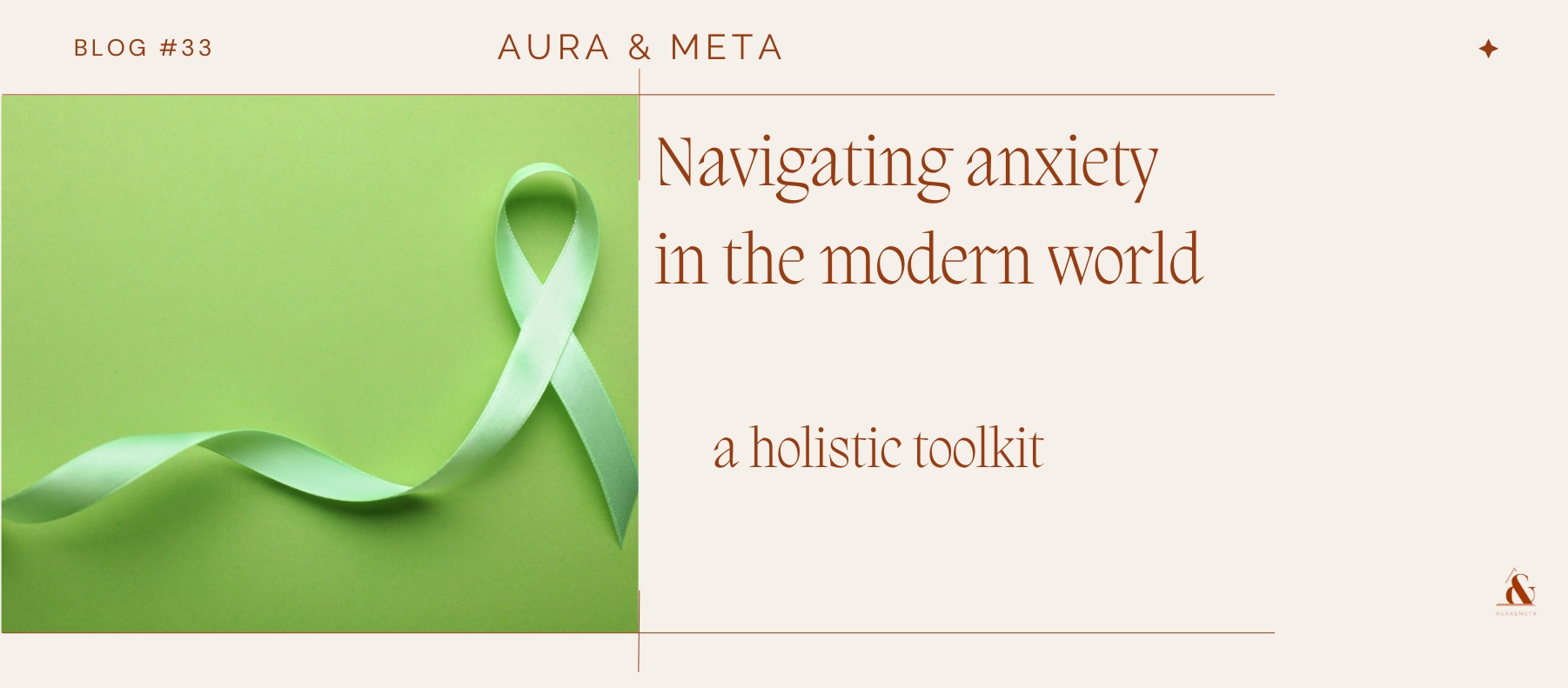In today’s fast-paced society, anxiety has become a prevalent concern, touching the lives of many across the globe. May is mental awareness month. Understanding how to effectively manage this condition is crucial, and a holistic approach offers a comprehensive toolkit that can empower individuals to lead calmer, more fulfilled lives. This blog delves into the nuances of managing anxiety through diet, lifestyle modifications, and mindfulness practices, reflecting the growing trend towards mental health awareness.
The Role of Diet in Managing Anxiety
Nutritional Foundations for Mental Health
What we eat significantly impacts our brain function and, by extension, our emotional state. Certain nutrients play critical roles in managing anxiety:
- Magnesium: Known as the calming mineral, magnesium can reduce anxiety symptoms by relaxing the nervous system. Foods rich in magnesium include leafy greens, nuts, and seeds.
- Omega-3 Fatty Acids: These essential fats are vital for brain health and have been shown to decrease anxiety. Incorporate sources like oily fish, flaxseeds, and walnuts into your diet.
- Probiotics: There is a strong connection between gut health and mental health. Consuming probiotic-rich foods such as yogurt, kefir, and sauerkraut can help maintain a healthy gut microbiome, which is essential for emotional well-being.
Avoiding Anxiety Triggers
Certain foods and substances can exacerbate anxiety symptoms. Caffeine and sugar are major culprits, as they can cause spikes and crashes in energy levels, leading to increased anxiety. Minimizing these can help stabilize mood and reduce anxiety.
Lifestyle Modifications for Anxiety Management
Regular Physical Activity
Exercise is a powerful anxiety reliever. Regular physical activity, especially aerobic exercises like walking, running, or swimming, releases endorphins and reduces stress hormones, improving overall mental health.
Quality Sleep
Poor sleep can exacerbate anxiety, while restful sleep can help mitigate it. Establishing a regular sleep routine, optimizing your sleep environment, and avoiding screens before bed can improve sleep quality and reduce anxiety.
Mindfulness Practices for Coping with Anxiety
Meditation and Deep Breathing
Mindfulness meditation and deep breathing exercises can significantly reduce anxiety levels. These practices help calm the mind and bring about a state of relaxation and present-moment awareness.
Yoga
Yoga combines physical postures, breathing exercises, and meditation, making it an excellent practice for reducing stress and anxiety. Regular yoga practice can help lower stress hormone levels and calm an anxious mind.
Integrative Approaches to Anxiety Management
Aromatherapy
Essential oils like lavender, chamomile, and frankincense have calming properties that can alleviate stress and anxiety. Using these in diffusers or personal care products can provide ongoing relief.
Herbal Supplements
Certain herbs such as ashwagandha, valerian root, and passionflower have been used traditionally to treat anxiety and stress. However, It’s important to consult with a healthcare provider before starting any herbal regimen to ensure it’s safe and appropriate for your needs.
Managing anxiety in the modern world requires a multifaceted approach. By incorporating nutritional adjustments, lifestyle changes, and mindfulness practices into daily life, individuals can effectively navigate anxiety and enhance their mental health. This holistic toolkit not only addresses the symptoms of anxiety but also contributes to long-term wellness and resilience.
For personalized guidance on creating a holistic anxiety management plan, learn more about how we can help you and book a discovery call to start your journey towards a calmer, more balanced life.
Manage Your Anxiety Naturally. Discover natural and effective strategies for anxiety management. Explore our holistic mental health services and book a consultation today to learn how personalized adjustments in diet, lifestyle, and mindfulness can help you lead a calmer, more fulfilled life.

